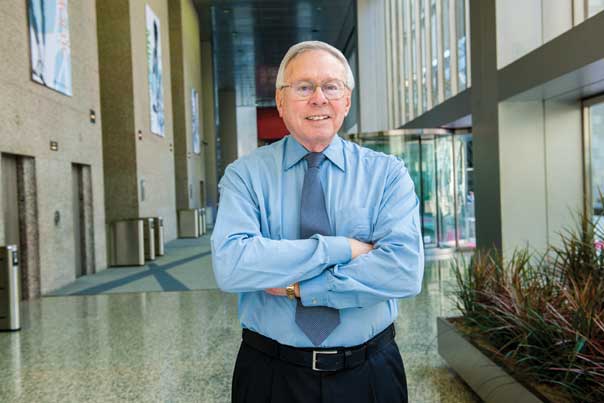This ETF Was a Wall Street Darling, Now It’s Struggling to Recover

The tech rally has given a lift to the controversial ARK Innovation ETF, but it’s still down more than two-thirds from its all-time high. Photo: Malte Mueller
The tech rally has given a lift to the controversial ARK Innovation ETF (ARKK-N).
Unfortunately, it’s still down more than two-thirds from its all-time high, reached in early 2021.
Three years ago, investors couldn’t pour money fast enough into ARK, which is managed by the formidable Catherine Wood. Her focus on disruptive technology was piling up huge profits. After a gain of 35.2 per cent in 2019, ARK soared 152.5 per cent in 2020. Between cash flow from investors and capital gains from the portfolio, assets under management reached the $30 billion range (figures in U.S. currency). The fund was the talk of Wall Street.
With most of the world under various forms of lockdown restrictions, stay-at-home technology stocks were booming. Shares in companies like Roku, Zoom, and Teladoc Health doubled and then doubled again. Ms. Wood was hailed as a genius.
But then the pandemic started to wind down and the lockdowns gradually phased out, allowing people to emerge from their homes. The fund started to slide and by autumn of 2021 the units were in freefall. The fund lost 23.1 per cent in 2021 and followed that with a 67 per cent plunge in 2022. By December of that year, units were priced below $30. At bottom, ARK was trading at its lowest level in five years.
Not surprisingly, investors bailed out. Combined with huge capital losses in the portfolio, the cash drain reduced the value of assets under management to $7.8 billion.
Ms. Wood was quoted as saying: “Corrections are good, they keep us all humble”. But no one wanted to be that humbled! Still, some investors held on, hoping for a dramatic turnaround.
They’ve been modestly rewarded. As of June 30, the fund was showing a gain of 41.3 per cent for 2023. It gained an additional 12.6 per cent in July 1. That’s a lot better than another hefty loss, but the units are still down 67 per cent from their all-time high.
The fund’s strategy is to place big bets on stocks that Ms. Wood believes will outperform the market. Right now, her largest holding is Tesla (TSLA-Q), which constitutes 10.9 per cent of the portfolio. It’s been a big winner, having more than doubled year-to-date. The number two position, Coinbase Global (COIN-N), at 9.4 per cent of assets, has also done well this year, with a gain of about 180 per cent.
But there have been some misses too. Ms. Wood sold ARK’s position in chip maker Nvidia (NVDA-Q) early in the year. Then the AI craze hit and Nvidia’s stock price tripled. It’s lost ground recently but it’s still ahead about 200 per cent year-to-date.
If Ms. Wood had held on to Nvidia, the fund’s turnaround would have been more impressive. Yes, that’s second guessing, but she had the Nvidia position and dumped it.
The bottom line is that ARK’s portfolio is better suited for gamblers than long-term investors. The positions are highly concentrated and some of the major holdings are money-losing companies. Coinbase, for example, lost $2.6 billion in its latest fiscal year. Plus, you pay a lot of money to carry this bet: the management fee of 0.75 per cent is about double the average for U.S.-based actively managed funds, according to The Wall Street Journal.
As one of my brokers told me years ago, “If you want to gamble, go to Vegas”. Good advice.
If you hold units, be aware of the volatility involved. If you can live with it, and you believe Wood still has the magic touch, then retain your position. If you’re having trouble sleeping at night, head for the exit.

Gordon Pape is Editor and Publisher of the Internet Wealth Builder and Income Investor newsletters. For more information and details on how to subscribe, go to www.buildingwealth.ca.
RELATED:
Q&A With Gordon Pape: Should I Move My Mutual Funds to a GIC in Retirement?
Short on Cash? 6 Things You Can Get for Free, Including Books and Streaming Apps